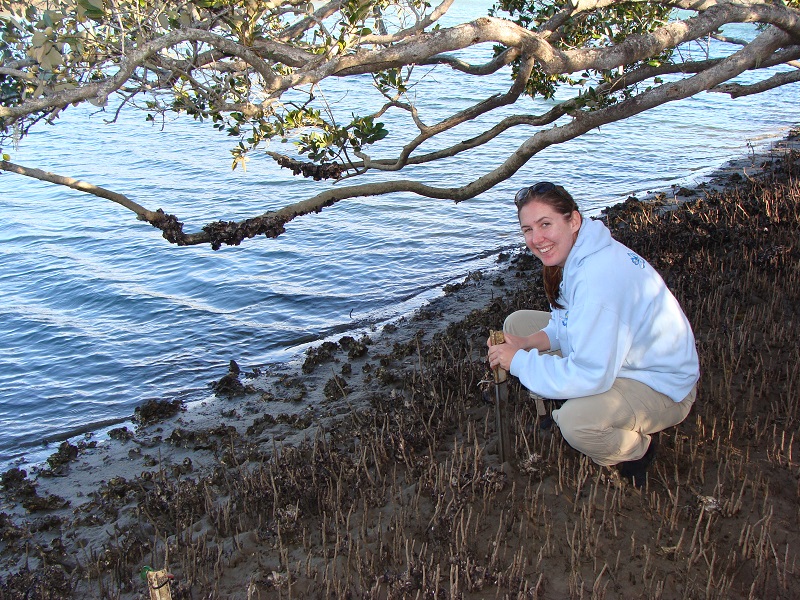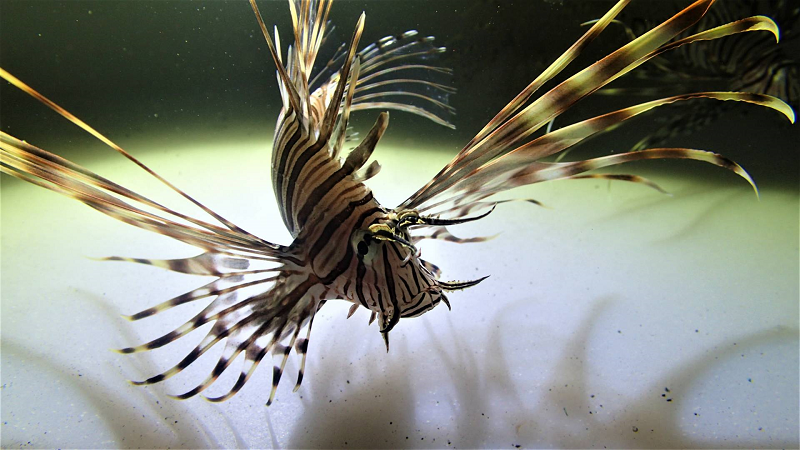 CSI Fellow Highlight: Cassie Glaspie
CSI Fellow Highlight: Cassie Glaspie
Marine coastal ecosystems are impacted by anthropogenic stressors such as climate change, habitat loss, and overfishing. An interdisciplinary approach is necessary to address real world problems related to sustainability of our coastal habitats and resources. The research in my lab, the Marine Community Ecology Lab in the LSU Department of Oceanography & Coastal Sciences, integrates laboratory, field, and modeling approaches to address the question: how do habitat loss, ocean acidification, and climate change alter interactions between members of an ecological community, and what are the implications for humanity?
My research focus is community ecology of benthic invertebrates and fishes, predator-prey dynamics, and bioenergetics. Benthic organisms are excellent ecosystem indicators, and the Marine Community Ecology Lab is developing tools that use benthic invertebrates to understand disturbance and recovery of coastal ecosystems in the Gulf of Mexico. One current interdisciplinary project involves understanding benthic recovery after offshore dredge pit infilling and the role of non-linear sedimentation (fluid mud) events. The Glaspie lab is also interested in modeling benthic production in coastal Louisiana, to predict the impacts of major restoration efforts such as sediment diversions on key fisheries resources such as blue crabs and shrimp.
 We are trained in scientific diving and we have an ongoing project to understand the
ecosystem impacts of invasive lionfish, and develop predictive tools for lionfish
that will allow ecosystem managers to locate areas with the highest potential for
ongoing or future invasions. This project involves collecting live lionfish and maintaining
them in the laboratory for experiments to measure their consumption rates and other
key vital rates. The Marine Community Ecology Lab has several large (100-400 L) recirculating
aquaria set up for teaching, experimentation, and long-term maintenance for a variety
of fish and invertebrate species.
We are trained in scientific diving and we have an ongoing project to understand the
ecosystem impacts of invasive lionfish, and develop predictive tools for lionfish
that will allow ecosystem managers to locate areas with the highest potential for
ongoing or future invasions. This project involves collecting live lionfish and maintaining
them in the laboratory for experiments to measure their consumption rates and other
key vital rates. The Marine Community Ecology Lab has several large (100-400 L) recirculating
aquaria set up for teaching, experimentation, and long-term maintenance for a variety
of fish and invertebrate species.
My team’s research extends across the globe. This spring, we are heading to New South Wales, Australia, to research the impacts of acid sulfate soil acidification on Sydney rock oysters in coastal estuaries. Specifically, we are interested in seeing how oysters are able to protect themselves from large decapod predators when they live in an acidified environment. We are using these estuaries, which have a fairly predictable gradient in acidification, to understand the impact of ocean acidification on natural bivalve populations.
For more information, please visit our website: http://glaspielab.com/